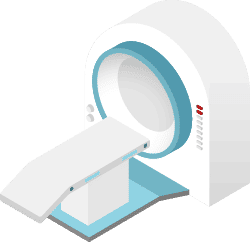The development of outpatient surgery is a real step forward in the surgical management of patients, involving significant challenges in terms of information systems. From the programming of resources and post-operative monitoring data to the traceability of all events, the solutions developed by the Evolucare Group are designed to optimize outpatient management.
The development of outpatient surgery is a real step forward in the surgical management of patients, involving significant challenges in terms of information systems. From the programming of resources and post-operative monitoring data to the traceability of all events, the solutions developed by the Evolucare Group are designed to optimize outpatient management.
By allowing patients to be discharged on the day of their procedure, outpatient surgery provides proven benefits in terms of quality of care (by limiting exposure to hospital-acquired infections, for example) as well as resource optimization (technical and personal services).
Ten years ago, outpatient procedures represented just over 30% of overall surgical activity in France. The government then developed incentives and set a target of 70% by 2022. In 2017, the rate of outpatient surgery had almost doubled (reaching 55.9% [1]), while revealing a slowdown that has led professionals to demand greater investment in training, patient information, organization of coordination and materials.
The sharing of information at all stages, from preoperative consultation to post-surgical patient follow-up, as well as activity planning and billing, is a fundamental aspect for the success and development of outpatient practices. However, regular investments have been made in the computerization of surgical activity, as shown in the 2018 Atlas of HISs [2]. Seventy-five percent of establishments are now equipped with OR management software (63% completed projects and 12% ongoing projects [3]). The results appear to be more modest, however, in terms of anesthesia records, as only large hospitals [4], cancer centers and clinics have a rate of computerization (completed or in progress) greater than 50%. There is still much room for improvement in CHUs (University Hospitals), for example!
Leader in the OR-anesthesia segment
Having gained widespread recognition for its Qbloc (OR management) and Opesim (anesthesia) [5] solutions, Evolucare Technologies has consolidated its market share thanks to their total complementarity and their ability to be integrated in any hospital information system. “The market has recently undergone major changes,” says Florent Desplanques, sales manager. “Considering the need for multi-site solutions suitable for GHTs (Regional Hospital Groups), on the one hand, and the existence of aging solutions that are becoming obsolete on the other, we took the opportunity to become leaders in the OR-anesthesia segment.”
Deployment in six months
It is this complementarity that allows Evolucare Technologies to meet all of the functional needs that arise in the context of outpatient surgery, with Qbloc and Opesim. “The specifications still include an outpatient component, although it is still modest,” observes Samuel Bouedo, Product Expert. “Professionals are all the more cautious since shifting to outpatient management involves changes to their usual OR management! ”
The deployment process takes these fears into account. The suggested phasing makes it possible to test the new organization, adjust the parameters and gradually increase the type of specialties, procedures and number of patients involved.
“It takes about six months to implement the software solution once the team of managers is well defined,” says Colinot Basset, “More often than not, establishments understand that not only will the tool help them better organize themselves, but the project will also help refine their approach to the organization of their outpatient activity.” “Being able to document and track patient follow-up without wasting time is a real driver for its adoption by professionals, anesthesiologists, nurses and administration departments,” adds Samuel Bouedo.
Hospital Techniques – Sept./Oct. 2018
[1] Press release from the French Association of Outpatient Surgery
[2] Annual publication of the DGOS (French Directorate General of Health Care Provision) which has measured changes in the deployment of hospital information systems since 2013
[3] Based on establishments with an OR
[4] With a budget of more than 70 million euros
[5] The hospital centers of Bayonne, Auch, Morlaix, Le Havre, Châtellerault, Tourcoing, Vitré, etc.













